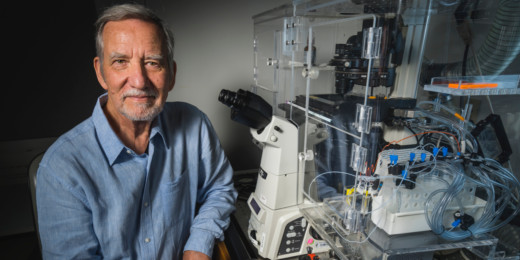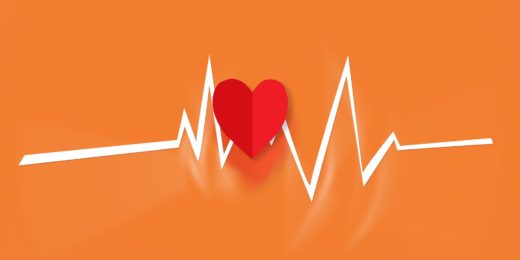Stanford researchers are using lab-grown heart cells to investigate how Chagas disease, which is spread by "kissing bugs," affects heart health.
Category: Cardiology
MyHeart Counts health data released for external research
Scientists from the MyHeart Counts research study have released data from 50,000 participants to enable additional investigations.
Flagging a cholesterol-raising disease using AI
Stanford researchers have created an algorithm to detect familial hypercholesterolemia, a hard-to-diagnose genetic disease.
Mystery novel, prophetic dream, decades of work spur breakthrough in hypertrophic cardiomyopathy
One night Jim Spudich knocked off a few chapters of a murder mystery before falling asleep, to awaken with a vision that would solve a medical mystery.
“Asian” isn’t specific enough for health data, research suggests
While different Asian groups vary in their risk for heart disease and stroke, all Asian groups are more likely to die early of a stroke than whites.
Congenital heart defects boost the risk of adult heart disease — by a lot
Someone born with a relatively simple heart problem, even when it's fixed by surgery, is 13 times as likely to later develop heart failure.
Turning up technology to reduce health risks
A Stanford clinic found that staying in close contact with patients virtually between appointments achieved dramatic health improvements. Can additional technology build on those gains?
A just-right fix for a tiny heart
A baby born with a rare heart complication is now thriving following two surgeries at Lucile Packard Children's Hospital Stanford.
Failure to take statins leads to higher mortality
More than a third of patients who are prescribed statins fail to take them regularly, and they are dying at higher rates as a result.
At event, experts talk heart health and share the latest on Apple Heart Study
If you happened to have dropped by the Apple Store in downtown San Francisco Monday evening, you might have caught sight of something out of …
Heart failure boosts risk of death following surgery
A Stanford researcher has found that patients with heart failure, even if it's relatively mild, are more likely to die within three months after surgery.
Why are so few interventional cardiologists women? A new study offers a few clues
Less than 5 percent of interventional cardiologists are women. A study has found that changing hours, male-dominant culture and radiation are deterrents.
Pediatric surgeon specializes in solving problems
Stanford Medicine pediatric surgeon and innovator Tom Krummel discussed his career trajectory at a recent talk.
Signal identified that can promote growth of small arteries, helping injured hearts
Researchers have discovered a protein signal that promotes the growth of collateral arteries, which can provide backup if major arteries are blocked.
Compound identified that may help treat heart failure
Stanford researchers have discovered a compound that reduces the symptoms of heart failure after a heart attack in initial animal tests.
AI demonstrates potential to identify irregular heart rhythms as well as humans
Artificial intelligence tied to a wearable heart monitor has shown potential to help diagnose irregular heart rhythms, new research shows.
















